Iran Faces Leadership Test as Conservative Cleric Seeks Speakership
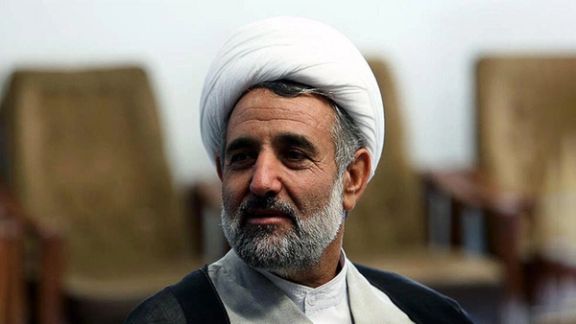
Mojtaba Zolnouri, the representative from Iran's holy city of Qom and a conservative cleric, has announced his candidacy for the speakership of the Iranian parliament.

Mojtaba Zolnouri, the representative from Iran's holy city of Qom and a conservative cleric, has announced his candidacy for the speakership of the Iranian parliament.
Zolnouri, who previously held roles within the Islamic Revolutionary Guard Corps and as chairman of the Nuclear Subcommittee, is leveraging the recent death of President Ebrahim Raisi to assert his ambitions amid Iran's political volatility.
Zolnouri's campaign for the speakership highlights his claims to reshape parliamentary dynamics, advocating for a shift from a speaker-centric to a representative-centric model. Amidst this political maneuvering, Iran's parliamentary elections have recently witnessed a historically low voter turnout, reflecting deep-seated public disillusionment with the government's legitimacy.
Reports from state media claimed a turnout of over 40%, yet contrasting narratives on social media suggest significantly lower participation, indicating a divide between official accounts and public sentiment. The voter apathy was even more pronounced in the subsequent run-off elections, where more than 90% of Tehran's eligible voters abstained, signaling a disconnection between the Iranian populace and the government.
As Zolnouri enters the race for parliament speakership and Iran gears up for a presidential election in June, following the sudden death of President Ebrahim Raisi in a helicopter crash, the forthcoming political events will be pivotal in assessing whether his leadership can redirect the parliament's focus and reinvigorate a disillusioned electorate, or simply maintain the status quo masquerading as reform.
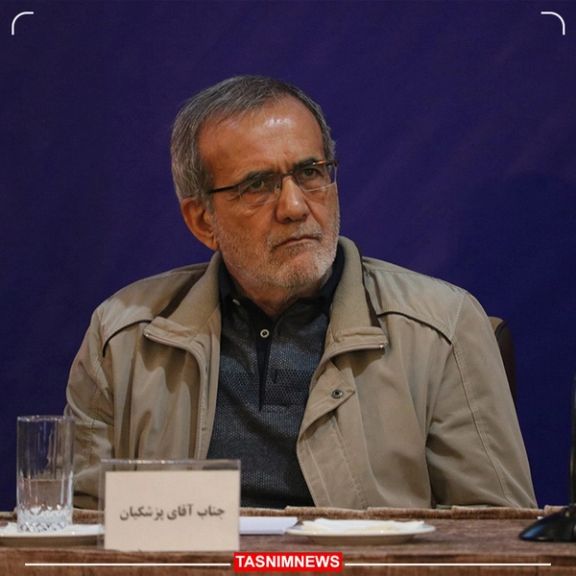
As Iran prepares to hold a snap election after the death of President Ebrahim Raisi, reformist politician Masoud Pezeshkian announced his bid for the presidency on Sunday.
Pezeshkian, known for his previous tenure as health minister and first deputy speaker of the parliament, said he “aims to increase voter turnout,” challenging the disenchantment with the electoral process in Iran.
Pezeshkian's announcement comes at a time as Iran prepares for an early presidential election slated for June 28, following Raisi's sudden death last week in a helicopter crash in northwest Iran.
The election arrives amid the Supreme Leader's efforts to consolidate power within hardline factions, pushing the presidency further into a ceremonial corner while ensuring all key positions are held by loyalists.
Public interest in elections has plummeted, with recent parliamentary elections marking a historic low in voter turnout. In Tehran alone, only seven percent of eligible voters participated in the recent run-offs, underscoring the growing disconnect between the electorate and the government. In the elections which saw Raisi gain the presidential seat in 2021, it was also record lows for the presidential elections indicating a similar challenge next month in the sham elections.
The upcoming presidential election is shrouded in uncertainty, with the Guardian Council likely to bar any significant non-hardline candidates.
As the acting president, Vice President Mohammad Mokhber, endorsed by Supreme Leader Ali Khamenei, temporarily fills the void until the elections, the political landscape in Iran remains tightly controlled. Statements from government officials continue to emphasize a hard stance against Iran's perceived enemies and a commitment to unyielding policy directions, signaling no change in the country's political and social climate, ultimately in the hands of the theocratic dictator, Khamenei.
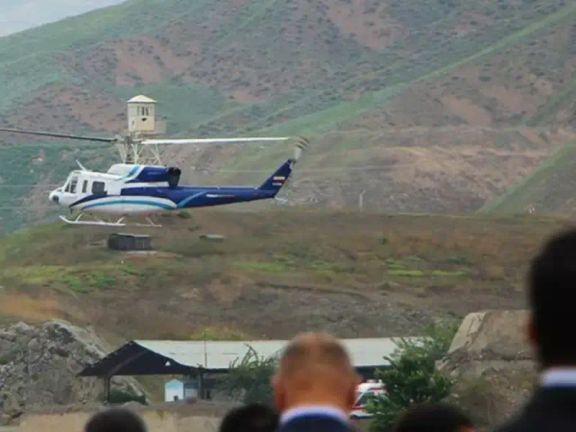
Iran has arrested several people across the country for "insulting" officials and "disturbing public opinion" as Iranians celebrate the helicopter crash that killed President Ebrahim Raisi and his companions.
The crackdown extends to online speech, with authorities detaining six men and one woman in Gilan for their social media posts about the incident.
Colonel Hamidreza Feizi of the Fuman police in Gilan emphasized the government's sensitivity to online discussions, stating that “any content deemed insulting to those killed in the helicopter crash would lead to police action.”
The Iranian government and affiliated media continue to glorify Raisi and his companions as "martyrs of service," attempting to quash any criticism or ridicule that followed the crash amid a leadership crisis.
The narrative control coincides with broader measures against free expression, including the arrest of a Tehran resident whose social media activity, once reaching six thousand followers, was forcibly curtailed under threat of legal action.
On Tuesday, Reza Babrnejad, the brother of Mehdi Babrnejad, a victim of the Woman, Life, Freedom protests, was arrested in response to his reaction to the death of Ebrahim Raisi, sharing a dance of his brother on Instagram celebrating the disaster. "The pure blood and the sufferings of all the mothers and fathers who seek justice will have their retribution. It may take time, but there is no escaping," he wrote.
Additionally, three days ago, the Judiciary Information Center of Kerman Province announced that 254 people were given "telephonic warnings and guidance" for posting "insulting" content, and eight individuals were also summoned for judicial proceedings.
After the news of the disappearance of the helicopter carrying the president, the former foreign minister of Iran, and their entourage on May 19, Persian-language social networks were filled with sarcastic messages praying for the news of their deaths to be true.
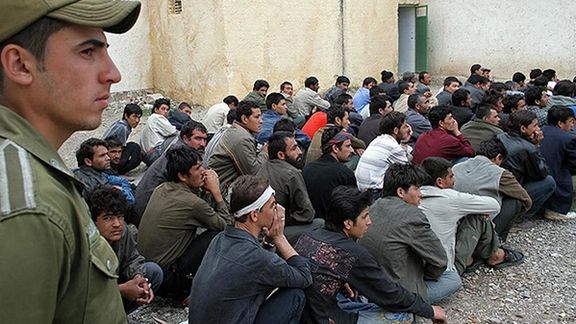
The Deputy Governor of Tehran has warned about the "threatening" presence of undocumented Afghan immigrants in the province, likening their removal to going to war.
"In dealing with illegal residents, we are like our youth who took up arms and went to war, becoming martyrs," Mahdi Babolhavaeji was quoted as saying by state media on Saturday.
Immigration of Afghans has drastically increased in the past one year, with some claiming that up to 10,000 have been entering Iran each day, and the total population of Afghans in the country is approaching 10 million.
Furthermore, the IRGC-affiliated Tasnim News Agency reported in March that a police plan had been initiated to round up and repatriate unauthorized immigrants from Tehran Province. Last week, it was announced that a "special patrol" has been established in Shahr-e Rey, south of Tehran, to identify and collect illegal foreign nationals.
According to Afghan authorities, Iran deported over 20,000 Afghan children last year, many of whom were unaccompanied and without guardians.
The majority of immigrants, both legal and illegal in Iran are Afghans, who are often referred to as “foreign nationals” by officials and the media. According to the 2016 census, over 1.5 million Afghans were in the country, followed by 34,500 Iraqis and 14,320 Pakistanis.
Currently, officials are estimating that the number of Afghan immigrants is between 5 and 8 million.
When the current administration took power in 2021, policies toward Afghan refugees changed. Those opposed to the new measures have referred to them as "open border," with the government's hardliners slamming the concerns as "Afghan Phobia."
The rapidly growing Afghan population in Iran sparked protests on social media and debates in government-controlled media. Many claimed that the government had a hidden agenda in allowing thousands of Afghans to enter the country illegally each day.
Videos from border regions showed crowds of Afghans simply walking into Iran, with some alleging that “a network” quickly helps them find housing and jobs.
The government did not take any steps to slow the influx of refugees, leading to accusations that the Islamic Republic might have sinister plans to use the Persian-speaking Afghans for political or military purposes.
Iran International reported exclusively last year that Unit 400 of the Quds Force of Iran's Islamic Revolutionary Guard Corps (IRGC) recruits Afghans for suicide attacks and collaborates with Al Qaeda to target Israelis.
In Syria, Afghan militias, trained and recruited by the Revolutionary Guard, played an essential role in supporting Bashar al-Assad's government.
However, with the economy suffering, the plan to retain the Afghan population appears to have changed. While the policy and the ideological reasoning behind it are still being defended, there is a backtrack in practice.
A relic of the last remaining justifications, on Friday, IRNA, the Iranian state news agency, reported that “more than one hundred thousand people from the Sunni and Shia communities of Afghan immigrants mourned the loss of” President Ebrahim Raisi and his delegation in the funeral in Mashhad on Thursday.
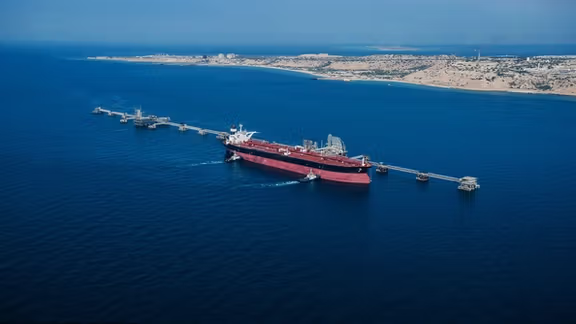
The Iranian government says that it has a plan to boost oil production to 4 million barrels per day, a high figure that Iran had not achieved even before the United States imposed sanctions in 2018.
While local media reported on the government’s claim, Iran International learned that in recent days authorities sent a document about purported plans to journalists in Tehran, urging them to report on it. The higher oil production figure is one of the claims made in that document seen by Iran International.
In November, Iran’s oil minister Javad Owji claimed that the country was producing 3.4 million barrels per day (mb/d) of crude oil, about 1.2 mb/d more than in mid-2021. But both OPEC and the International Energy Agency, put the country’s crude oil production at 3.1 mb/d in September, when Owji had claimed 3.3 mb/d output level for that month.
While oil production and exports have increased since late 2020, when the new US administration changed Washington’s approach to Iran, lack of capital for investment and sanctions hamper Iran’s ability to boost both oil and natural gas production. Meanwhile, domestic oil and gas consumption have increased, leading to energy shortages during winter months, and a limited capacity for exports, particularly natural gas.
Facing an economic crisis, the Iranian government has frequently claimed various achievements in recent months. However, Domestic critics remain skeptical, with some media outlets, commentators, and politicians questioning why these purported successes have not translated into improved economic conditions for ordinary people.
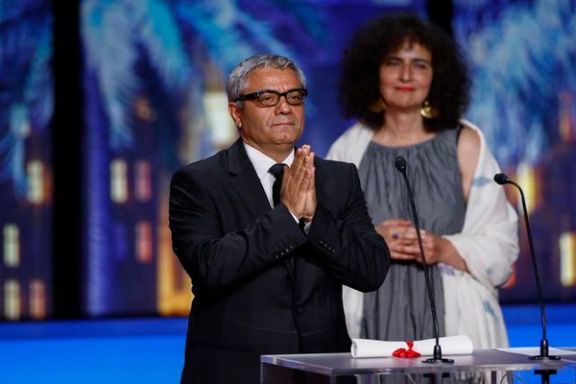
The Iranian people are being held hostage, dissident Iranian filmmaker Mohammad Rasoulof told an audience at the Cannes Film Festival awards ceremony, after receiving the festival's special award.
Rasoulof who recently fled Iran after getting an eight-year jail term, won the prestigious festival's Special Award for Best Screenplay during a Friday ceremony for his latest film "The Seed of the Sacred Fig".
After receiving the award, Rasoulof said, "I am very happy for this award, and at the same time, my heart is with the people of Iran who wake up every day, every hour, and every morning to a disaster."
He added, "The people of Iran have been taken hostage."
Rasoulof also spoke about many dissident artists and writers that he said suffer under the rule of a “tyrannical and oppressive regime.”
Referring to political prisoners in Iran, he mentioned the young dissident rapper, Toomaj Salehi, who has been sentenced to death.
The dissident filmmaker fled the country by foot through rugged mountainous terrain after years of intimidation and the confiscation of his passport.
Before leaving the country, he had received a harsh sentence that included eight years in jail, flogging, fine, and property confiscation for “the signing of statements and making of films and documentaries,” which the Islamic Republic claims are “collusion to commit a crime against the country's security.”
After leaving Iran Rasoulof, in a post on the social media platform Instagram, described the pressure exerted on him by Iranian security agencies over the recent years. He mentioned that friends, acquaintances, and other individuals helped him leave Iran.
In an interview with Iran International on the sidelines of the Cannes Festival, Rasoulof elaborated on the main themes of his film which focuses on "an investigating judge in the Revolutionary Court in Tehran who grapples with mistrust and paranoia as nationwide political protests intensify and his gun mysteriously disappears."
"I think the main issue is ‘devotion’. My main goal was to follow and see how this system [of the Islamic Republic] works. Who enters this structure and participates?"
He added that, based on his lived experience of “facing the judge, interrogator, investigator, etc.,” these people are mere "devotees" who have "entrusted their head to another place," with decisions being made by someone else.
Rasoulof further emphasized that the concept of ‘devotion’ is heavily symbolized within the Islamic Republic. He pointed to the role models promoted by state propaganda and added that within such a government, there are individuals who, with arms crossed over their chests, preach surrender and devotion.
Referring to the oath that judges in Iran are required to take, which is also referenced in the film, Rasoulof said, "It is very strange that at the end of the judges' oath, they are asked to be loyal to the Islamic Republic and support the leader. It is very strange that justice and human commitment become victims of such a requirement."
He added that such an oath can only be expected from the Islamic Republic, emphasizing that it is characteristic of this government to create such an oath.
Moreoever, Setareh Maleki, one of the film’s actresses, who had to leave Iran along with Rasoulof to attend the Cannes Film Festival, told Iran International, "The conditions for making the film were very, very difficult."
She added, "It was harder than you can imagine. Our group was small, about 30 people, to maintain security. This made the work much harder for everyone because each person had to do the work of several people."
The actress continued, "The working conditions were full of stress and pressure. Everyone was constantly waiting for something to happen. At night, in our accommodation, we thought this could be the night when they come and arrest everyone."